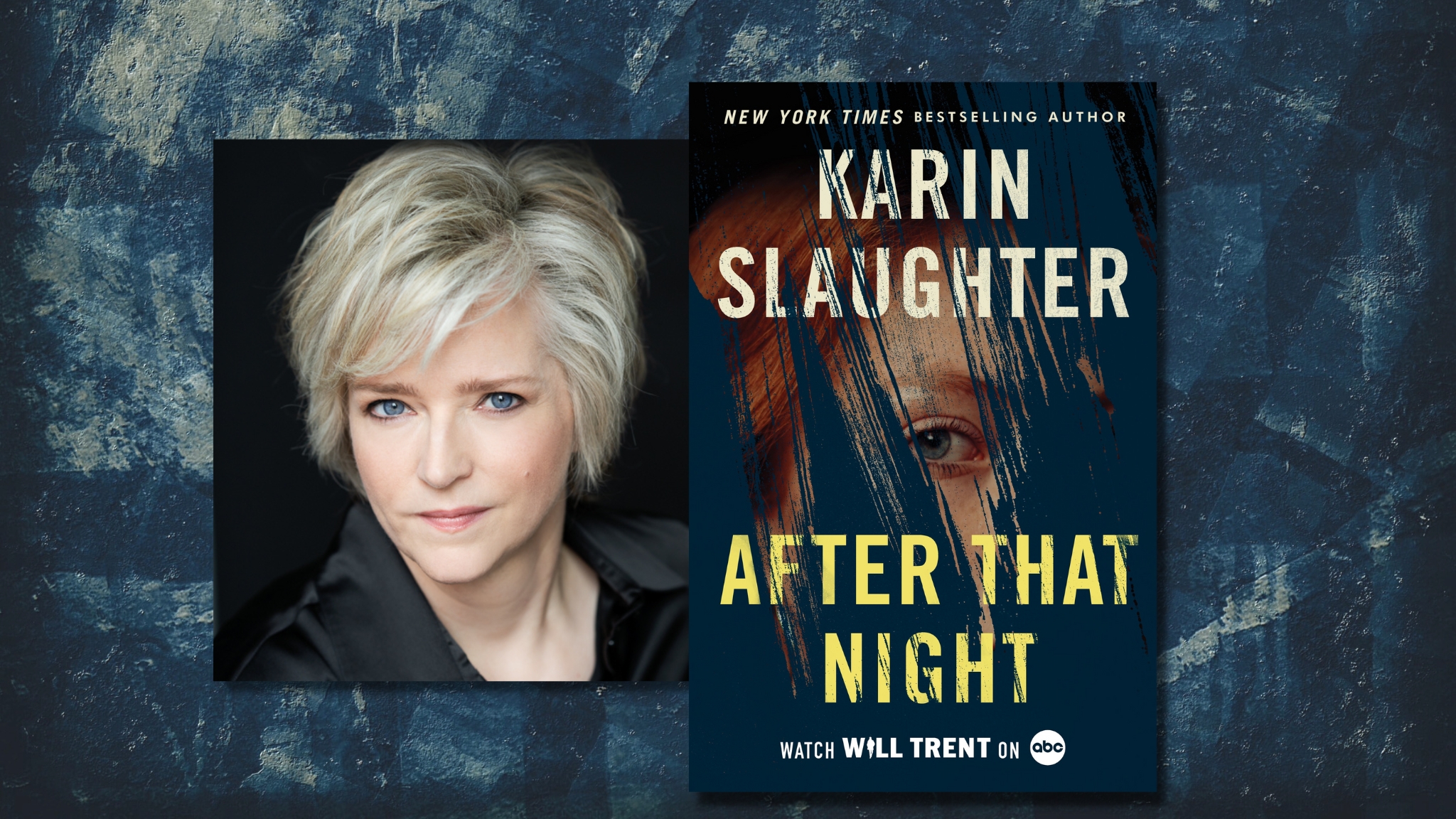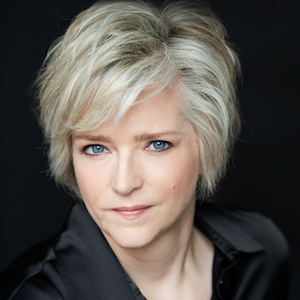
Karin Slaughter fans always know what they’re in for— gritty, propulsive, unflinching, and perhaps most notably, unabashedly topical thrillers, no matter how controversial or harrowing.
With her latest — the 11th in her bestselling Will Trent series and her 23rd overall — Slaughter continues her trend of not pulling any punches, this time focusing on acts of violence against women. It’s an issue close to her heart.
“I feel like telling honest stories of violence against women helps shine a light on what’s really going on, sometimes not even behind closed doors,” she says, in an interview with BookTrib. “For so long, polite society decided that we were willing to put up with a certain level of violence against women because we told ourselves that bad things only happen to bad women: Why was she drinking? What was she wearing? Why was she in that part of town?”
It’s a mindset Slaughter hopes to challenge in her fiction — and she does so brilliantly in After That Night (William Morrow). The story begins with Dr. Sara Linton and Special Agent Will Trenton happily engaged — but things turn scary when Sara is called into the ER to help save a young woman who has been brutally attacked in a way that bears striking resemblance to her own assault 15 years prior. The ensuing investigation leads Sara and Will down a dangerous path of betrayals and, well, murder, of course.
After That Night is grueling and compassionate, thorough and fast-paced. It’s everything you want in a thriller — with the authenticity society needs. On the week of her release, Slaughter took a few minutes out of her busy tour schedule to answer a few questions.
You are both frank and mindful in your writing of sexual assault and violence against women. Why is this balance important to you?
No one hears about a robbery and asks what the victim was doing in that part of town. The cops never say to the family of a murder victim, “Hey, this investigation is going to be difficult. Are you sure you want us to do it?” Rape, assault, harassment and coercion are traumatic, life-altering, soul-shattering crimes. We need to openly talk about them and discuss the psychic toll they take on not just women, but husbands, fathers, sons, and communities, because the only people who are protected by our silence or worse, apathy, are the perpetrators.
Throughout the novel there is substantial commentary woven in about violence against women, especially in light of the fact that the justice system doesn’t always work in women’s favor. Do you write with a message in mind?
There’s always a delicate balance between writing about social issues and keeping up the driving pace of a thriller. I am at my core a thriller author, and I never want to slow down or interfere with the rhythm of a story to climb onto a soap box. Any issues I grapple with will be in the context of a (hopefully) great story.
While many of your characters are well-liked, some — such as Britt in this book — may not be quite as easily embraced. And yet, we root for her. How do you make a “mean girl” sympathetic?
I see the villains as real people. I’m not a believer in “evil” as a Biblical concept. People do bad things for very clear reasons. There’s generally a psychopathy involved with more brutal crimes, but then you have contributing factors such as child abuse, neglect, brain damage, etc. If we say someone did something bad because they’re simply evil, that sort of lets them — and society as a whole — off the hook. We know there are certain elements that foster violence and it’s easier to throw up our hands as if it’s completely beyond our control than to acknowledge that through lack of funding, lack of health care, lack of empathy, lack of decency and understanding, we are letting certain things fester and crossing our fingers every time it happens that it will never happen again.
As with many of your books, After That Night includes plenty of medical jargon — and I know you don’t moonlight as a doctor. What’s the trick to the authenticity you bring to your stories?
I have a not-so-secret doctor, David Harper, who is an amazing person (and friend) who patiently answers all of my crazy questions. In his career, David has done a bit of everything from emergency medicine to teaching to life flights to — you name it. I think I’m his favorite student because I can’t kill any real-life patients. I’m constantly throwing out impossible problems for him to solve. The thing that makes him so invaluable is that he gets that I’m writing fiction. So, he might send me ten pages of explanations and drawings and photos of a procedure, but then I have to condense it into a few paragraphs so that it works. He understands that I’ve got to keep the story moving, but also that I need to understand the rules before I can break them.
About Karin Slaughter:
 She is the author of more than 20 instant New York Times bestselling novels, including the Edgar–nominated Cop Town and standalone novels Pretty Girls, The Good Daughter, and Pieces of Her. She is published in 120 countries with more than 40 million copies sold across the globe. Pieces of Her is a #1 Netflix original series starring Toni Collette, and WILL TRENT, based on her Will Trent series, is on ABC (and streaming on Hulu in the U.S. and Disney+ internationally). False Witness and The Good Daughter are in development for television. Slaughter is the founder of the Save the Libraries project—a nonprofit organization established to support libraries and library programming. A native of Georgia, she lives in Atlanta. (Photo Credit: Alison Rosa)
She is the author of more than 20 instant New York Times bestselling novels, including the Edgar–nominated Cop Town and standalone novels Pretty Girls, The Good Daughter, and Pieces of Her. She is published in 120 countries with more than 40 million copies sold across the globe. Pieces of Her is a #1 Netflix original series starring Toni Collette, and WILL TRENT, based on her Will Trent series, is on ABC (and streaming on Hulu in the U.S. and Disney+ internationally). False Witness and The Good Daughter are in development for television. Slaughter is the founder of the Save the Libraries project—a nonprofit organization established to support libraries and library programming. A native of Georgia, she lives in Atlanta. (Photo Credit: Alison Rosa)






